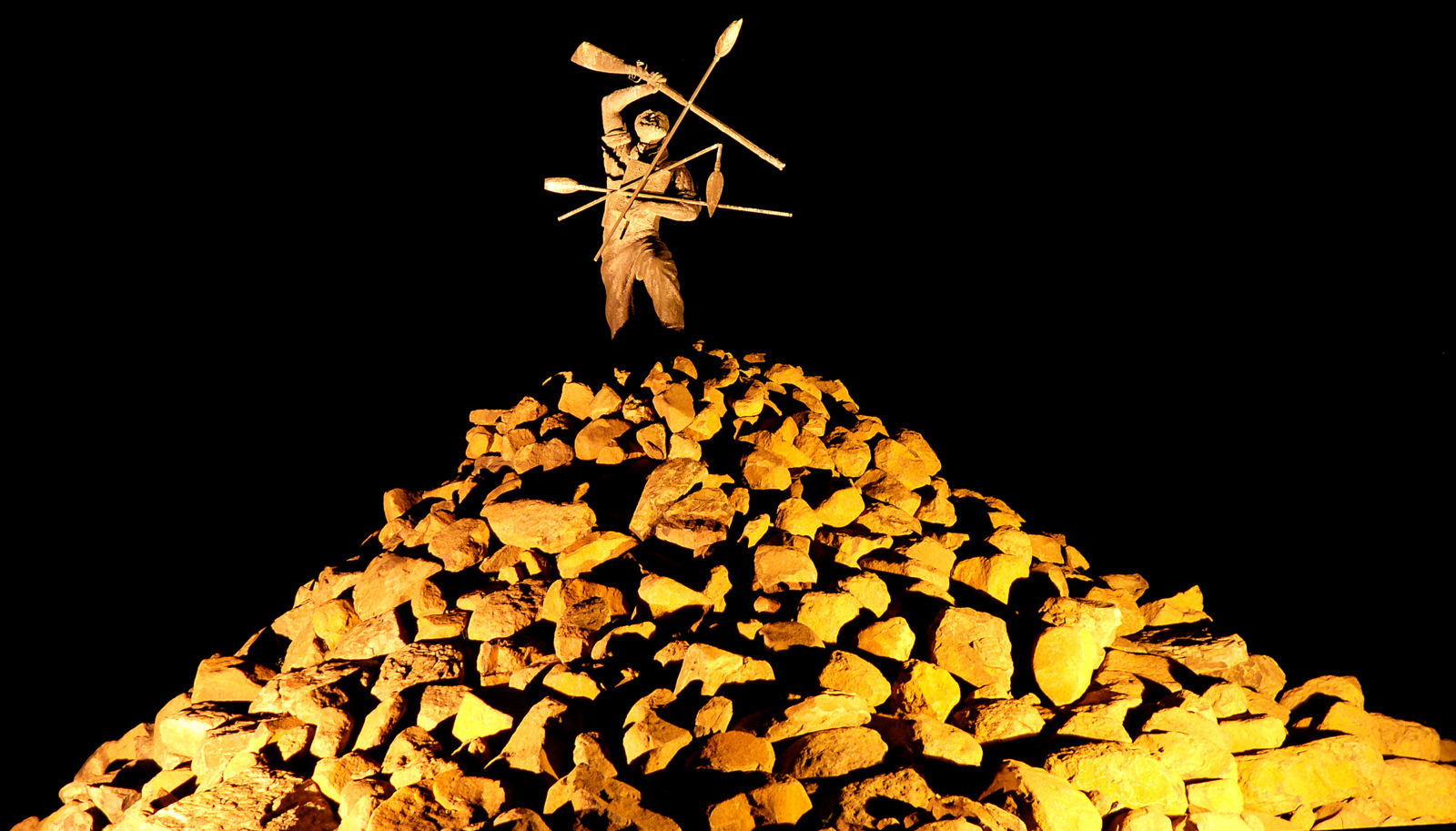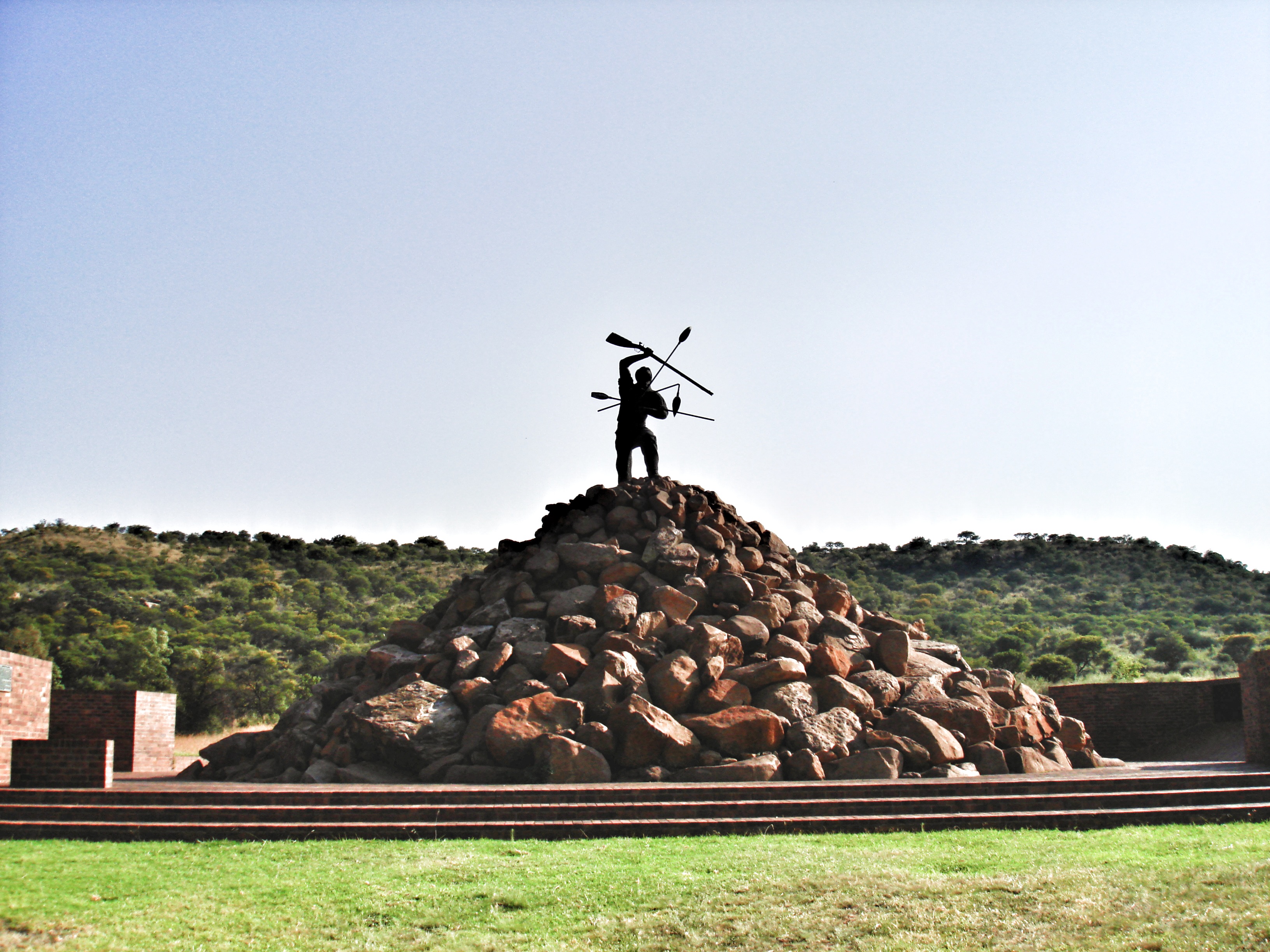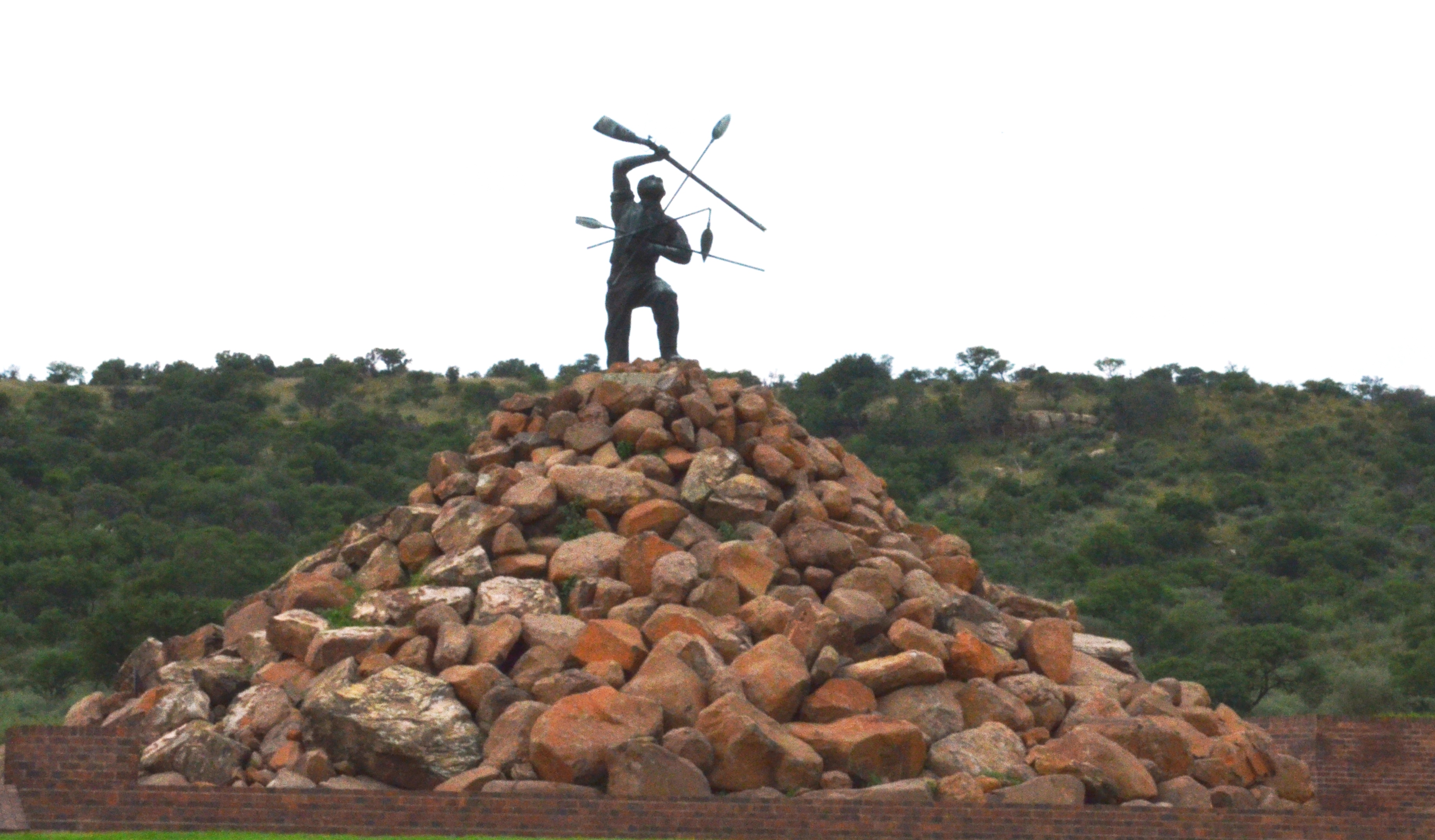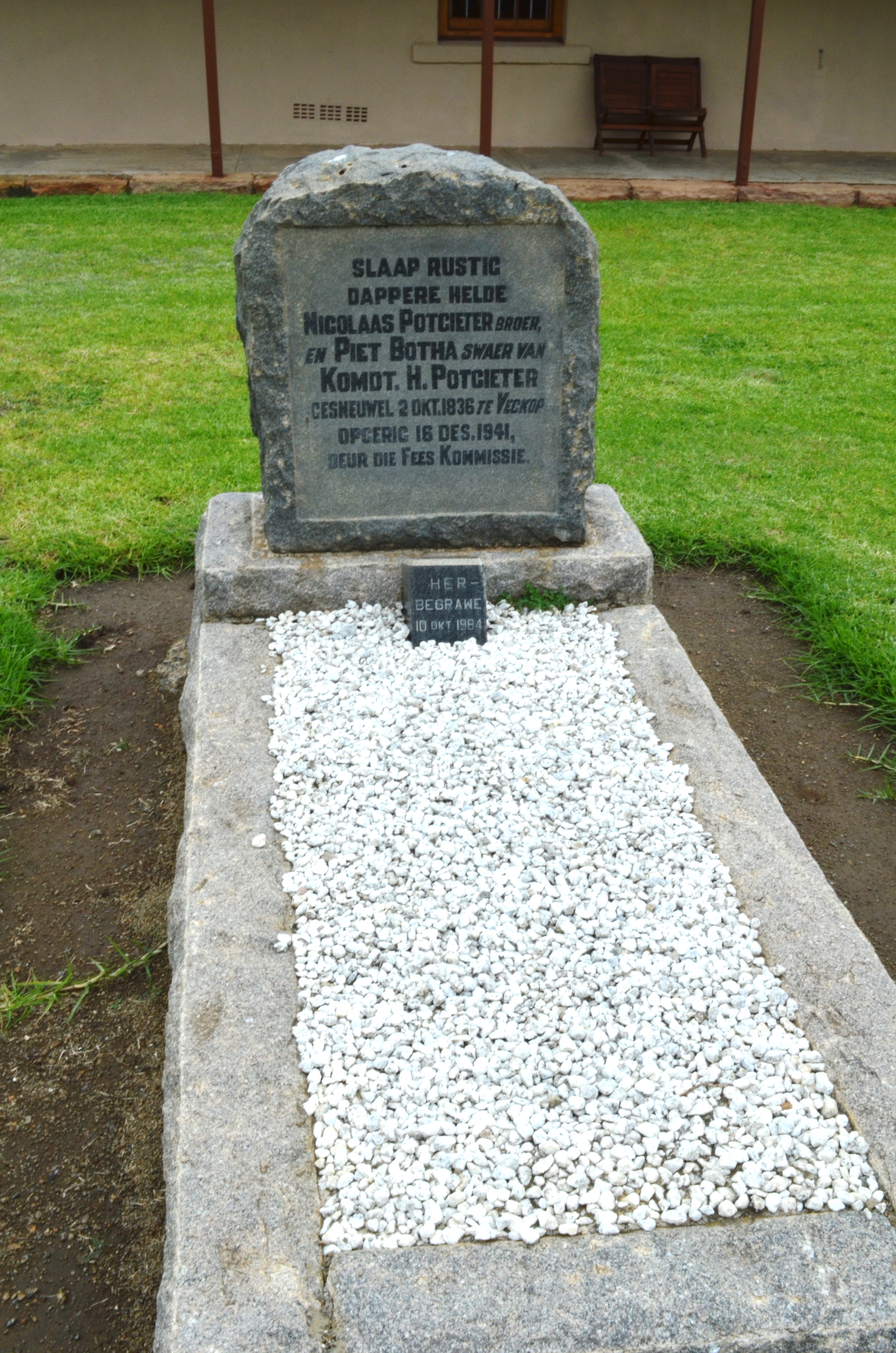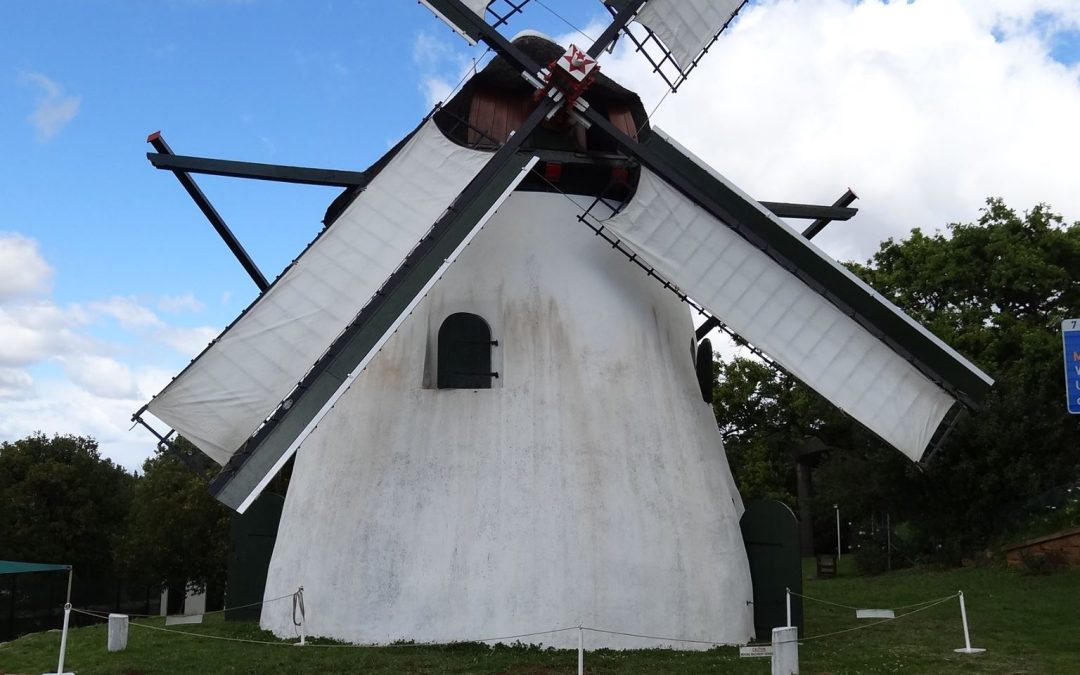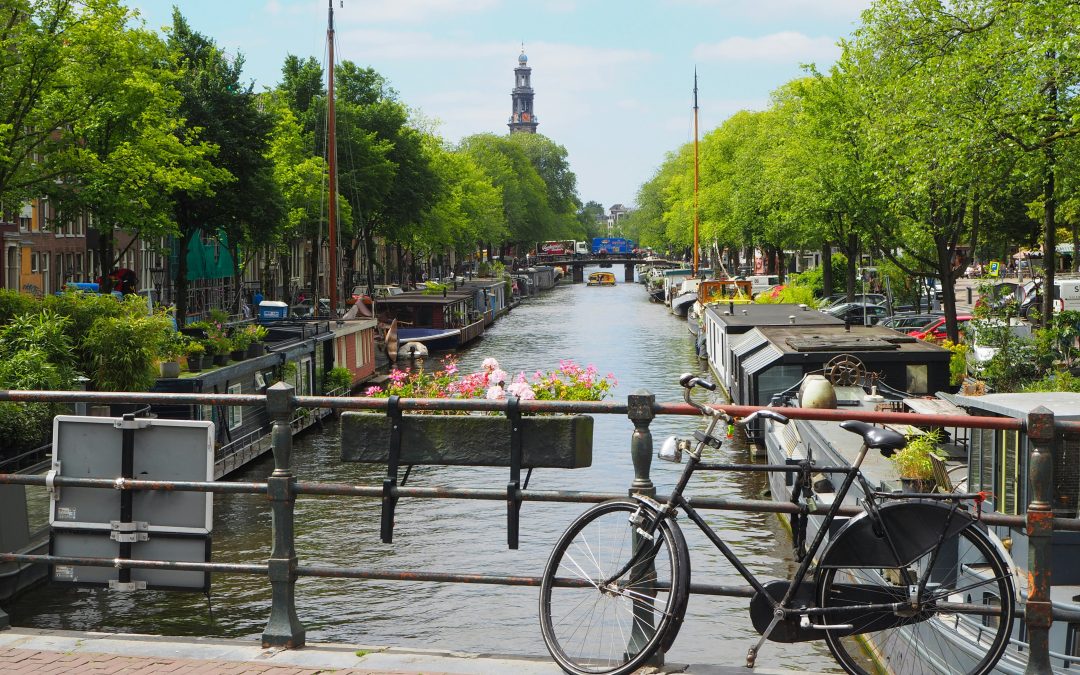The Battle of Vegkop is written in the history books of the Afrikaner as a day of miraculous deliverance. On this day in October 1836, the Voortrekker party of Andries Hendrik Potgieter, with only 40 able-bodied men (including seven boys), managed to fend off a ferocious attack by between 4 000 and 6 000 of Mzilikazi’s Ndebele impis. More than 400 Ndebele were killed in the attack, but the Voortrekkers suffered only two casualties. Impossible, one would say today, yet it is true.
On the slope of a small hill, about 20 km from the Free State town of Heilbron, this historical site is indicated by white stones. At the foot of the hill stands an imposing Coert Steynberg creation of a Voortrekker man fending off an assegai with his muzzle loader in his right hand. In his other hand he clutches a Bible. The magnificence of this statue, with a pyramid of thousands of stones at its feet, speaks of this important event in Voortrekker history.
In his research article on this battle in Historia magazine in 1986, the historian M.C. van Zyl emphasises the importance of Vegkop: “For the Transvaal and to some extent even for the Free State, Vegkop had the same significance as did Blood River for Natal.”
The final attack at Vegkop was preceded by several attacks on the Voortrekkers by the Ndebele, because Mzilikazi was intent on driving the Voortrekkers from the area. While sources differ on the exact date of the battle, it is generally accepted that it probably took place on 20 October 1836. This year therefore will be the 182nd commemoration of this event.
Potgieter expected an attack by the Ndebele on the Trekkers, so they made the necessary preparations for an attack. According to Van Zyl, the location chosen for the laager was perfect. “It was stablished on an incline immediately to the south of the oblong hill that would become known as Vecht Kop. From the laager the defenders had a good view over the vast plain,” he explained. Although the hill itself did not play a role in the battle, Van Zyl thinks it was used as a strategic vantage point prior to the battle.
The 51 wagons available were arranged in a laager prior to the battle – 40 on the outside and the others in a smaller circle inside. The innermost wagons afforded protection to the women and children, while the outer circle was transformed into a virtually impenetrable wall. The wagons were positioned one behind the other, with the front wheel of one wagon tied to the rear wheel of the next, using chains and thongs. The openings in between were plugged with thorn-tree branches.
The run-up to and the attack itself were an extremely stressful experience to the Voortrekkers. Early the morning, a small group of men rode from the laager to meet the attackers and to negotiate for peace, but they were greeted in a hostile manner and had to return to the laager while shooting on their attackers. Inside the laager the attack by the thousands of impis was awaited with fear. Meanwhile, Sarel Cilliers conducted a brief service and prayed for God’s protection.
The Ndebele, armed with their throwing assegais (every soldier usually took about six of them to the field of battle) and stabbing assegais, meanwhile had been approaching the laager and began driving off the Voortrekkers’ livestock grazing outside the lager. According to Van Zyl, “the impis did not appear to be in a hurry to attack. Some whiled away the time by honing the blades of their assegais.”
After some time the Voortrekkers waved a red cloth to provoke the attackers – the challenge was accepted. A month after the attack, Potgieter told Erasmus Smit that a “countless multitude, shouting hellish war cries and beating on their shields like thunder from the clouds” came charging towards the Voortrekkers. The Voortrekkers, armed with muzzle loaders with an effective range of up to 80 metres, dealt the Ndebele a significant blow, however. (According to Van Zyl, a military expert had calculated that every man could fire at least four rounds per minute.) From the other side, the assegais were raining down on the Voortrekkers.
The firepower, however, was just too awesome and the attackers were forced to withdraw, although they did succeed in capturing all the Trekkers’ livestock (100 horses, 5 100 head of cattle and 50 000 sheep). After the battle, more than 1 100 assegais were found in the laager. Nicolaas Potgieter and Pieter Botha were killed in the attack, and about 14 others suffered stab wounds. Outside the laager, dead Ndebele were lying scattered everywhere – more than 400 in total.
Although most of the Trekkers survived the attack, they were not yet out of danger, because they had lost their source of food. However, help came from the Barolong chief, Moroka, who supplied the Trekkers with draught oxen and cows.
Today, the hills and ridges at Vegkop give silent testimony of the impossible victory for a handful of Voortrekkers.
Pictures: Ilze Nieuwoudt
